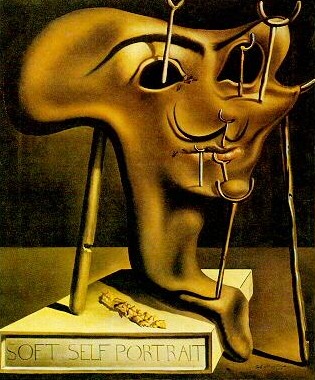The Four Types of Reality

We foolishly use only one word to describe what confronts our senses.
“Reality.”
This is what is “real,” it is “what we know,” that which is “true,” and “out there,” “outside of our minds.”
Well, there are, it turns out, a few realities.
There is, first, your personal reality. This is the reality in your head, your subjective awareness. This is your conscious state, or the sensation of wakefulness upon waking up from sleep.
This where we feel love and anger and pain. This is where our opinions come from, as well as the worldviews which produce them.
Cognitive psychology tells us that human opinion is easily swayed through mental “heuristics,” which the brain produces to easily deal with complex problems in the environment. These heuristics are closely related to mental stereotypes and very often lead to very simplistic, illogical and error-prone thinking.
We also know that human opinion is powerfully pushed around by emotion. Social psychology knows now that most people, most of the time, come to their most cherished political and moral views entirely because of some emotional attachment or emotionally-charged perception. That’s it. The whole concern for logical consistency, evidence and plain old good-reasoning comes AFTER the belief or worldview has been fully accepted as true for emotional reasons.
So our personal realities, our subjective views, are almost tragically, hopelessly untrue.
These constant visions and experiences we call “reality” are, to make matters worse, interpreted through evolution’s own public relations firm: ego-enhancement. We tend to think that ideas we can identify with, feel comfortable with, feel safe and connected with are more likely to be real or true. Our beliefs are usually not only flatly false and a bit ridiculous but often magnificently self-serving.
Yet our inner reality FEELS real. And it is. It’s our personal, subjective reality. It’s just not really worth shit, outside of being able to feel intense emotional experiences.
But hold on, three other kinds of reality exist.
The second type of reality is social reality. This reality exists collectively, that is, it exists because it is shared by two or more personal realities.
When an idea, belief, worldview or whatever, is shared by at least two people (i.e., shared by two personal realities), it takes on a new character.
It’s easy to see that this kind of reality exists with a little trick.
Suppose you are an Occupy Wallstreet protestor (is that movement still happening? I’m a social scientist, so I try to learn about how humans work instead of supporting their political causes). Imagine you have a dream one night about painting a mural on the side of a building. You think that this piece of art will stimulate the protesting spirit of local youths in some truly unique and pathbreaking way.
Yet, imagine that your mural idea is just a little weird. A little off, maybe a little creepy, even. So, though you are personally convinced the mural idea is great, you can also imagine that other people might not find it to be so wonderful.
Now, imagine you attend some job-related social gathering a few weeks later and, offhandedly, tell a few of your colleagues about your dream and about your (somewhat weird) mural idea. Your co-workers smile and clap their hands almost involuntarily. A great idea, they say. That’s genius, and yet so obvious, how has nobody thought of that?
Now imagine how you would feel about your mural idea walking home from that party. Compare this new,uplifted , feeling to the original doubts and uncertainty about the opinions of others that accompanied initially waking up from the dream.
The difference? Now it seems as though your mural idea really is, in fact, truthfully, in reality a good idea. As more people come to share this belief that the mural idea is good, the mural idea, literally, in social reality, BECOMES a good idea, simply because people believe it to be so. You feel this belief as increased motivation and excitement which wills you to further think about the mural idea.
Its brilliance has become socially real.
Shared personal realities constitutes a second type of reality, a social reality.
The third type of reality is objective reality.
Objective reality is what would exist even if there were no humans alive. It is what exists completely independently of our minds and our feelings and our experiences. When humans talk about “facts” they are referring to this objective reality.
This one’s easy to grasp. Let’s go back to the mural example.
Imagine everyone loves your mural idea and they think it will re-ignite the (dead? God, I don’t know!!) Occupy Wall Street movement. Several unbiased people you know like your idea, and so this idea is now truly, and in social reality, a great idea.
Yet it fails. Fails terribly and pathetically. Suppose your name was “Hailey.” Your mural goes over so horribly, you are legally re-named “Faily” by your scorned parents. Moreover, that mural of a young Mexican boy vigorously fucking a defeated bald eagle (Take THAT America!) draws lawsuits that bury you for decades.
So, in your personal reality, on account of your dream, the mural idea was awesome. In social reality, on account of the shared perceptions of others, your idea was awesome. In objective reality, however, your idea was false — it was calibrated to incite protestors and it simply didn’t.
Lastly, there is a very special kind of reality.
We’ve only been able to truly comprehend this reality for roughly 500 years, but there have been those who’ve had glimpses of it for thousands of years…
Remember that personal realities are embedded in the social reality. Social reality is just a collection of personal realities.
But social reality doesn’t always meet up with objective reality. Sometimes it does, I suppose, but because objective reality is “outside” of our heads and “outside” of human awareness, our human realities (personal and social) don’t always line up with objective reality. Hell, this why the mural idea failed…
Without further ado, the fourth type of reality is shared objective reality. We perceive this reality when our social realities line up with objective reality.
You would have experienced this type shared objective of reality if your mural idea had ACTUALLY worked. It would have worked because it would have actually tapped into a latent, unmet need of protestors for motivation. It didn’t do this, and that’s why it failed so terribly.
So, then, I propose to you four realities.
As a sociologist, I think these are the four realities that matter: personal, social, objective and shared objective.
Hmm….Oddly, my mind just blanked.
I don’t think I have anything more to say on this.





